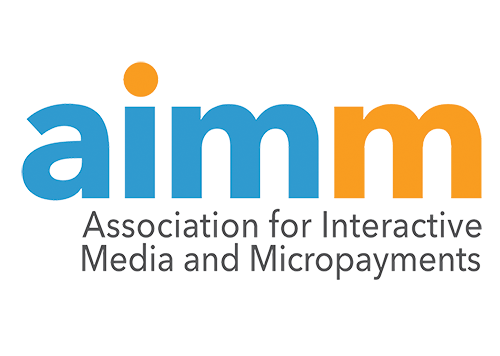Payment Services Directive update (PSD2) exempts network operators from Payment Srevice Provider Regulation as long as certain conditions met.
Action taken so far:
AIME, with support from Mobile Broadband Group (MBG), PhonepayPlus (PPP) and UK Treasury lobbied Europe for the exemption to remain and for higher thresholds per transaction, protection of charity donation and inclusion of entertainment and transport tickets. Most points were won with the exception of the monthly aggregate transaction limits.
Action being taken:
AIME, MBG and PPP are now working with Treasury on following points prior to PSD passage through legislation:
Technical Implementation of 300 Euro spending cap
The exemption within Article 3(l) applies to Digital Content, voice services, tickets and charitable donations only up to 300 Euros per month. Dependent on the requirements to impose this limit either as a technically enabled “hard stop”, a contractual arrangement between the network and its subscribers or a reporting exercise, this presents in order, a significant and disproportionate capital expenditure a lower cost policing exercise or an opportunity to review annually the proportion of breaches and the resulting correction needed. Estimated worst case cost is over £100m with only 0.4% of subscribers exceeding this limit.
Exchange rate between Euro and Sterling
The exchange rate for the €50 per transaction and €300 per month into sterling equivalent needs to be set and remain in place for a minimum period of time e.g. annual.
As this form of payment facility is not pan-European (subscriber is billed by their home network regardless of roaming status) there would be no necessity to fix an exchange rate proportionate to the Sterling to Euro equivalent and the rates should be representative to the local conditions and consumer expectations.
In 2015, Ofcom permitted (as part of the Non Geographic Communication Services review that the imposed cap on premium rate call charges could be moved to £45 after 13 years at its previous cap of £30 to encourage new consumer services. Adequate consumer protection was built in by the form of spend reminders and forced termination.
We recommend £45 per transaction and £270 per month.
Clarification of the status of intermediaries processing the exempted payments for digital content and voice
Treasury has previously confirmed that they would interpret the exemption at 3(l) as covering “transactions” in their entirety where a network is just one of the parties in the value chain. In other words, any intermediary who sits between the network and merchant in the value chain of an exempted transaction will also be covered by the exemption for the purposes of that transaction. It will be necessary to ensure as part of the transposition exercise, either as part of the regulation or the accompanying guidance, that there is complete clarity on this point.
Definition of “subscriber”
Our understanding is that “subscriber” refers to each subscription – either to a fixed phone line (Caller Line Identity or CLI) or to an individual mobile SIM (Subscriber Identity Module) card. We would like to confirm that this is the general understanding for transposition. It may be helpful to know that existing EU legislation regarding VAT (Place of Supply) already defines “subscriber” as referring to a Subscriber Identity Module card in the case of a mobile user.
Differing definitions of “digital content” within PSD2 and Consumer Rights Directive
There is a discrepancy between the definition of “digital content” in the PSD2 and the definition of “digital content” as contained within the Consumer Rights Directive. The CRD definition is narrower, in that it regards something as digital content only where there is no physical product whatsoever and separately defines digital services. This could set the CRD definition at odds with the PSD2 definition, which aggregates digital content and digital services together.
Status of DQ services given obligations within the Universal Services Directive (USD)
There is a concern amongst Directory Enquiry (DQ) providers that their obligation within the Universal Services Directive (USD) to always provide a number-reference service could, in a small number of cases, be at odds with the PSD2 requirement to exempt third party billed services up to 300 Euros per month. The core groups of DQ users include subscribers who are not digitally conversant, not digitally enabled or by the current circumstances (e.g. driving) are unable to utilise digital facilities. USD requires a continuation of a DQ service if the subscriber is willing to pay for the service and would thus supersede PSD2 requirements.

